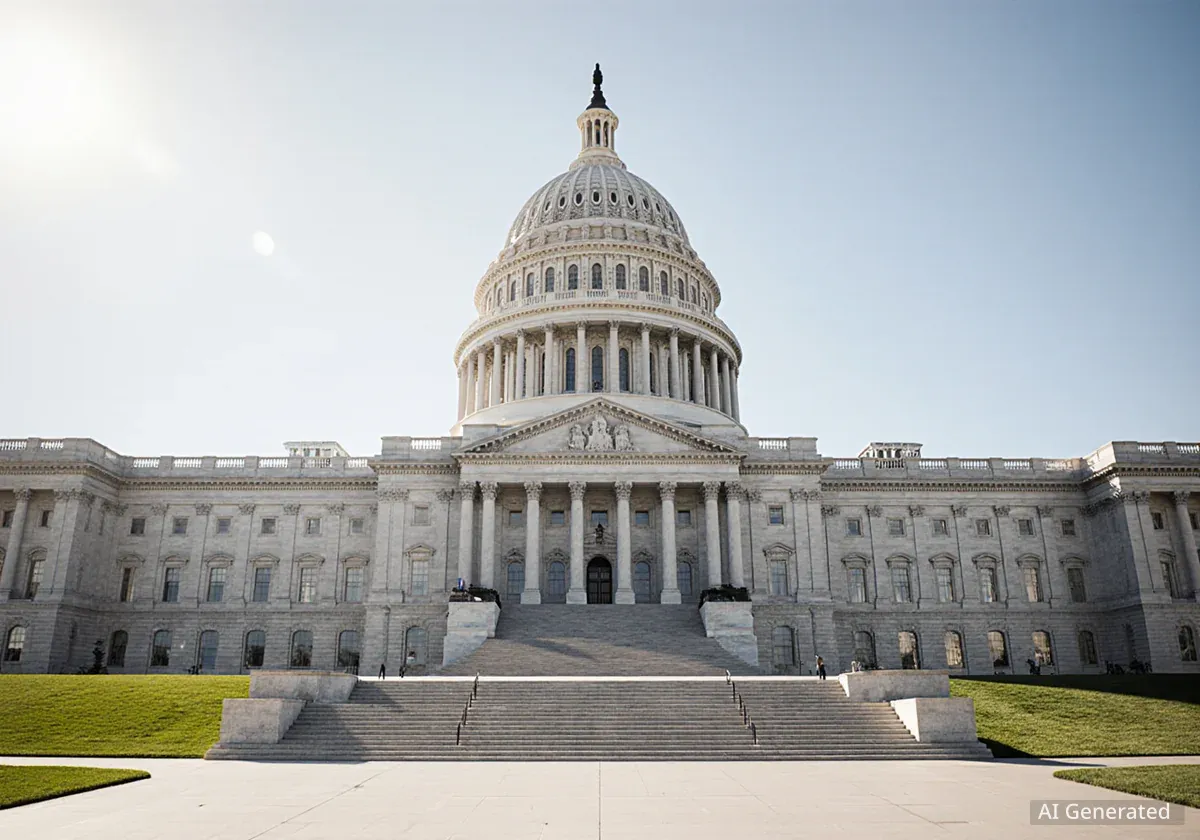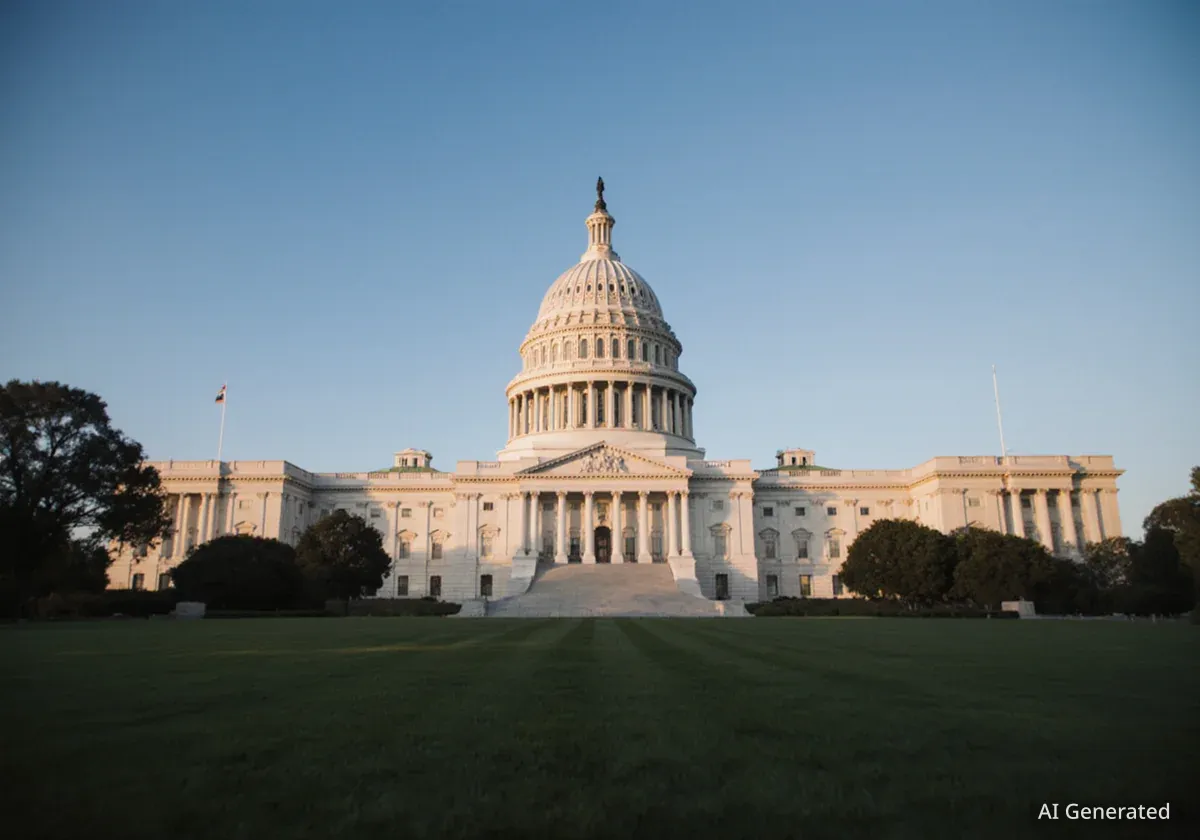Israeli Finance Minister Bezalel Smotrich characterized the Gaza Strip as a potential “real estate bonanza” during a recent conference, stating that discussions with the United States about a redevelopment plan are already in progress. His comments have drawn significant attention to proposals for the future of the territory following extensive military operations.
Key Takeaways
- Israeli Finance Minister Bezalel Smotrich referred to Gaza as a potential “real estate bonanza” at a conference in Israel.
- Smotrich claimed that negotiations with the U.S. have begun regarding a "business plan" for the redevelopment of Gaza.
- A separate but related proposal, the GREAT Trust, outlines a plan for relocating Palestinians and constructing new "smart cities" in the area.
- The Boston Consulting Group (BCG) provided financial modeling for the GREAT Trust plan, though the firm has since distanced itself from the project.
- U.S. Senators have expressed concerns that such plans could lead to the permanent displacement of Gaza's Palestinian population.
Smotrich's Remarks on Gaza's Future
Speaking at a real estate conference in Israel, Finance Minister Bezalel Smotrich presented a vision for the economic future of the Gaza Strip. According to reports from Israeli media, he described the territory as a significant investment opportunity.
Smotrich suggested that the costs of the recent military conflict could be offset by future development projects. He framed the destruction in Gaza as the initial step in a larger urban renewal process.
“We paid a lot of money for the war, so we need to decide how to divide the percentages of the land in Gaza. The demolition phase is always the first phase of urban renewal. We did that, now we need to start building,” Smotrich was quoted as saying by Haaretz.
Discussions with the United States
The Finance Minister also claimed that high-level discussions about these development plans are underway. He stated that Israel has “already begun negotiations with the Americans” on a “business plan” for the region.
According to Smotrich, these proposals have been presented to U.S. President Donald Trump's administration. This suggests an effort to align future development in Gaza with American geopolitical and economic interests.
Context of the Statements
Bezalel Smotrich is a prominent figure in Israel's far-right political movement and serves as the country's Finance Minister. His statements often reflect a hardline stance on issues related to Israeli settlement and territorial control. The remarks were made amid ongoing international discussions about post-conflict governance and reconstruction in Gaza.
The GREAT Trust Redevelopment Proposal
Smotrich's comments align with elements of a detailed redevelopment plan known as the Gaza Reconstitution, Economic Acceleration and Transformation Trust, or GREAT Trust. This proposal was developed by a group of Israeli business figures.
The plan outlines a framework for large-scale reconstruction in Gaza, funded by a substantial initial investment. The financial viability of this project was analyzed by the Boston Consulting Group (BCG), a major U.S. consulting firm.
Financial Projections
According to the proposal documents, BCG's financial modeling projected that the GREAT Trust could be highly profitable. The firm calculated that an initial investment of $100 billion could potentially generate a return four times that amount.
Key Components of the Plan
The GREAT Trust proposal includes several controversial components regarding the current population of Gaza. It suggests a system for relocating Palestinians to other countries, offering them a small financial stipend for leaving.
The plan also addresses land ownership through a novel system:
- Landowners would exchange their property rights for a “digital token.”
- This token could be used for relocation expenses.
- Alternatively, the token could eventually be redeemed for an apartment in one of six to eight new “AI-powered, smart cities” planned for construction in Gaza.
BCG has since sought to distance itself from the plan, stating that the partners who approved the project are no longer with the company. The firm's involvement has raised questions about the role of multinational corporations in post-conflict planning.
Concerns Over Population Displacement
The proposals for relocating Gaza's 2.2 million residents have prompted serious concerns from U.S. lawmakers and international observers. While Israeli and American officials have reportedly described any relocation as temporary, some critics are skeptical.
U.S. Senators Chris Van Hollen (D-Maryland) and Jeff Merkley (D-Oregon) recently issued a report following a visit to the region. They concluded that Israel is preparing for the permanent expulsion of Palestinians from Gaza, a move they described as an ethnic cleansing campaign.
“The fact that both the Netanyahu government and now the Trump Administration are framing their plan as a call for the ‘voluntary’ exodus of Palestinians from Gaza is one of the most fraudulent, sinister, and twisted cover stories ever told,” the senators' report stated.
The report argues that official assurances of temporary relocation are misleading and that the underlying goal is to make life in Gaza unsustainable, thereby compelling the population to leave permanently. These concerns highlight the deep-seated political and humanitarian issues at the core of any redevelopment plan for the territory.





